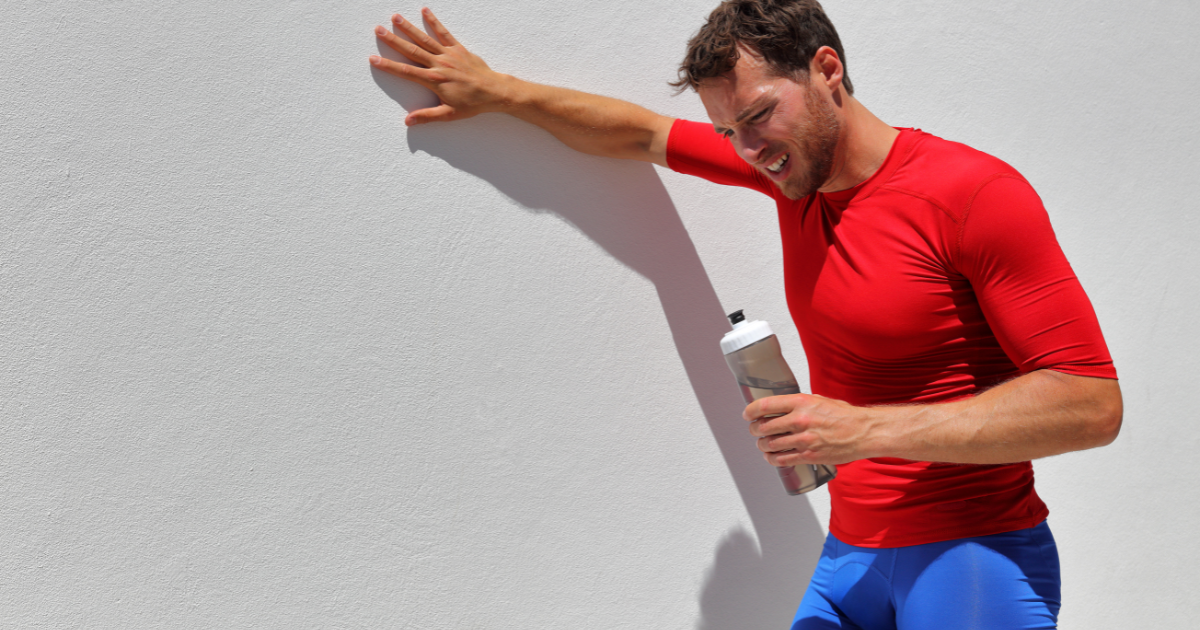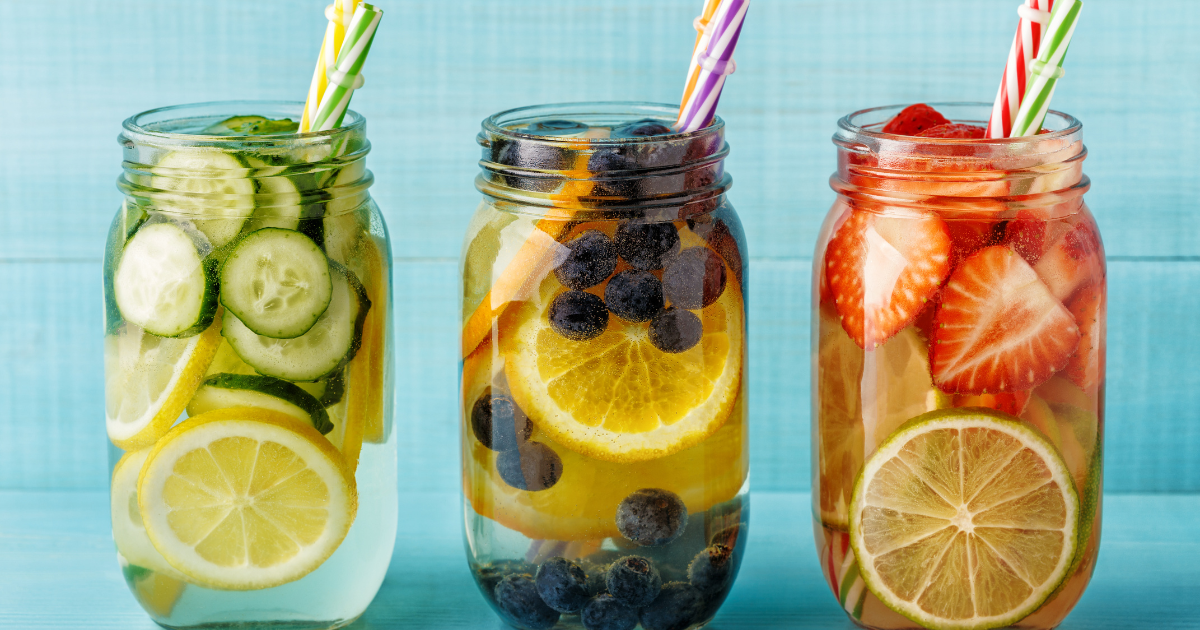5 Tips to Avoid Dehydration and Get Pain Relief
Key Takeaways:
- Hydration is crucial for pain relief: Dehydration can worsen joint, muscle, and headache pain. Keeping joints lubricated requires proper hydration, especially if you have conditions like rheumatoid arthritis.
- Recognize mild vs. chronic dehydration: Mild dehydration may cause subtle symptoms like dry mouth or fatigue, while chronic dehydration leads to persistent joint pain and inflammation.
- Easy ways to increase water intake: Carry a water bottle, set reminders to drink, or flavor your water with fruits like lemon or cucumber to stay hydrated.
- Incorporate hydrating foods: Eating fruits and vegetables high in water content, such as watermelon, cucumbers, and oranges, helps maintain hydration and reduce joint discomfort.
- Choose alternatives to plain water: Herbal teas and infused waters are flavorful, hydrating options that make it easier to meet your daily water needs.
- Cut back on dehydrating habits: Limit caffeine, salty foods, and alcohol, which can contribute to dehydration, and drink water to counteract their effects.
- Watch for early signs of dehydration: Be mindful of dry mouth, fatigue, and dark urine, which are early indicators that your body needs water.
- LUMINAS Pain Relief Patches complement hydration: Combine hydration efforts with LUMINAS Patches for targeted pain relief and comprehensive pain management.

Did you know that being dehydrated can actually make your pain worse? Whether it’s a headache, sore muscles, or if you are experiencing joint pain, not drinking enough water might be a bigger part of the problem than you think.
In this blog, we’re going to discuss the link between dehydration and joint pain and share simple and practical tips to help you increase your water intake and reduce the pain that dehydration can cause.
Why Hydration is Key to Pain Relief
Can dehydration cause joint and muscle pain? Absolutely!
Dehydration affects your joints and muscles in unexpected ways. Synovial fluid, the gel-like liquid that cushions joint cartilage and keeps joints healthy, requires water to function properly. Without proper hydration, your joints lose their natural lubrication, leading to joint pain and increased friction that can make movement uncomfortable.
But the impact of dehydration doesn’t stop there. If you have pre-existing conditions like rheumatoid arthritis or other forms of joint inflammation, dehydration can make these conditions even worse. Rheumatoid arthritis, for instance, causes joint inflammation and pain, and as dehydration reduces the body's ability to lubricate the joints, this leads to increased stiffness, swelling, and discomfort.
Mild Dehydration vs. Chronic Dehydration: Understanding the Difference
It’s important to recognize that while mild dehydration may not seem like a big deal at first, it can quickly cause issues. Mild dehydration can occur after a short period of not drinking enough water—like when you’re out in the sun too long or after a tough workout.
The symptoms might be subtle, such as a slight dry mouth, mild fatigue, or a headache. You might not even notice it right away, but even this level of dehydration can start to impact your joints and muscles, making you more prone to joint pain and muscle cramps.
However, when dehydration becomes frequent, it can turn into chronic dehydration. Chronic dehydration is a more serious, long-term condition where your body consistently doesn’t get the water it needs. Over time, chronic dehydration can lead to persistent joint inflammation, muscle spasms, and more severe joint pain that's harder to treat.
1. Drink Smarter, Not Harder – How to Get Enough Water
You’ve probably heard that you should drink eight glasses of water a day. While that’s a good rule of thumb, the amount of water you need can depend on your age, weight, and how active you are. Instead of stressing about the exact amount, focus on drinking water throughout the day.
Tips To Get Enough Water
- Carry a water bottle: Keep a reusable water bottle with you and take sips throughout the day to maintain adequate hydration.
- Set reminders: Use an app or set alarms on your phone to remind you to drink water every hour.
- Flavor your water: If plain water isn’t your thing, try adding a slice of lemon, cucumber, or a few berries for a little extra flavor.
By making these small changes, you can ensure that you’re drinking enough water to keep your joints healthy and your muscles functioning properly.
2. Refresh Your Plate – Hydrating Foods You’ll Love
Drinking water isn’t the only way to stay hydrated. Eating foods that have a high water content is a great way to reach your hydration goals. Many fruits and vegetables are packed with water and can help you stay hydrated while also giving you a boost of vitamins and minerals.
Hydrating Foods to Add to Your Diet:
- Watermelon: It’s 92% water and a sweet, refreshing treat.
- Cucumbers: These are not only hydrating but also low in calories and great for joint lubrication.
- Oranges: Packed with vitamin C and water, they’re great for a mid-day snack and can help with joint pain.
Try incorporating these foods into your meals or snacks. For example, a salad with cucumber slices, a side of watermelon, or a fresh orange can all help you meet your hydration needs while reducing your risk of joint pain and muscle cramps.
3. Sip Something Special – Hydrate with Flavorful Teas & Infusions
If you find it hard to drink plain water, herbal teas and infused water can be a delicious alternative. Herbal teas like chamomile or peppermint not only help keep you hydrated but also have soothing properties that can help with pain relief and muscle function.
Fun and Easy Hydration Ideas:
- Herbal teas: Brew a pot of your favorite herbal tea and enjoy it hot or iced.
- Infused water: Add slices of fruit or herbs like mint to your water for a tasty twist that encourages you to drink more water.
These drinks can be a fun way to keep your hydration levels up without feeling like you’re forcing yourself to drink plain water all day.

4. Ditch the Dry Spell – Cut Back on Dehydrating Habits
Some of the things you love might be making it harder to stay hydrated. Caffeine (found in coffee, tea, and soda), alcohol, and salty foods can all contribute to dehydration.
Ways to Balance Dehydrating Habits:
- Limit caffeine: Try to reduce your intake of coffee or switch to decaf to avoid becoming chronically dehydrated.
- Watch your salt: Cut back on salty snacks and processed foods, which can lead to lost fluids and joint inflammation.
- Drink water with alcohol: If you’re having a drink, alternate with a full glass of water to help stay hydrated.
By making small adjustments to your habits, you can help your body retain more water and keep your joint pain and muscle cramps in check.
5. Know the Signs – Watch For Cues Before They Escalate
Sometimes, it’s hard to know when you’re getting dehydrated until it’s too late. That’s why it’s important to pay attention to the early symptoms of dehydration.
Common Signs of Dehydration Include:
- Dry mouth
- Fatigue
- Dark urine
If you notice any of these symptoms, it’s a good idea to drink a full glass of water right away. Keeping track of how much water you drink throughout the day can help you stay ahead of dehydration and avoid unnecessary pain.
LUMINAS Patches – A Winning Pain Relief Combo
While staying hydrated is crucial, sometimes you need a little extra help managing your pain. That’s where LUMINAS Pain Relief Patches come in. Our patches are charged with natural electrons that work with your body's innate healing processes, providing quick, targeted pain relief alongside your hydration efforts.
Consider using LUMINAS patches as part of a comprehensive approach to managing pain —combining good hydration with targeted pain relief.
Try LUMINAS Pain Relief Patches today
Stay Hydrated, Stay Pain-Free
Keeping your body well-hydrated is one of the simplest yet most effective ways to manage joint pain, muscle cramps, and other discomforts related to dehydration. By drinking more water, eating hydrating foods, and being mindful of dehydrating habits, you can take control of your health and reduce your pain.
Your body needs consistent hydration to stay healthy and pain-free. Make sure you’re drinking enough water throughout the day to support your overall well-being.
For an extra boost in managing your pain, consider integrating LUMINAS Pain Relief Patches into your routine.
Stay hydrated, stay healthy, and keep moving forward!









